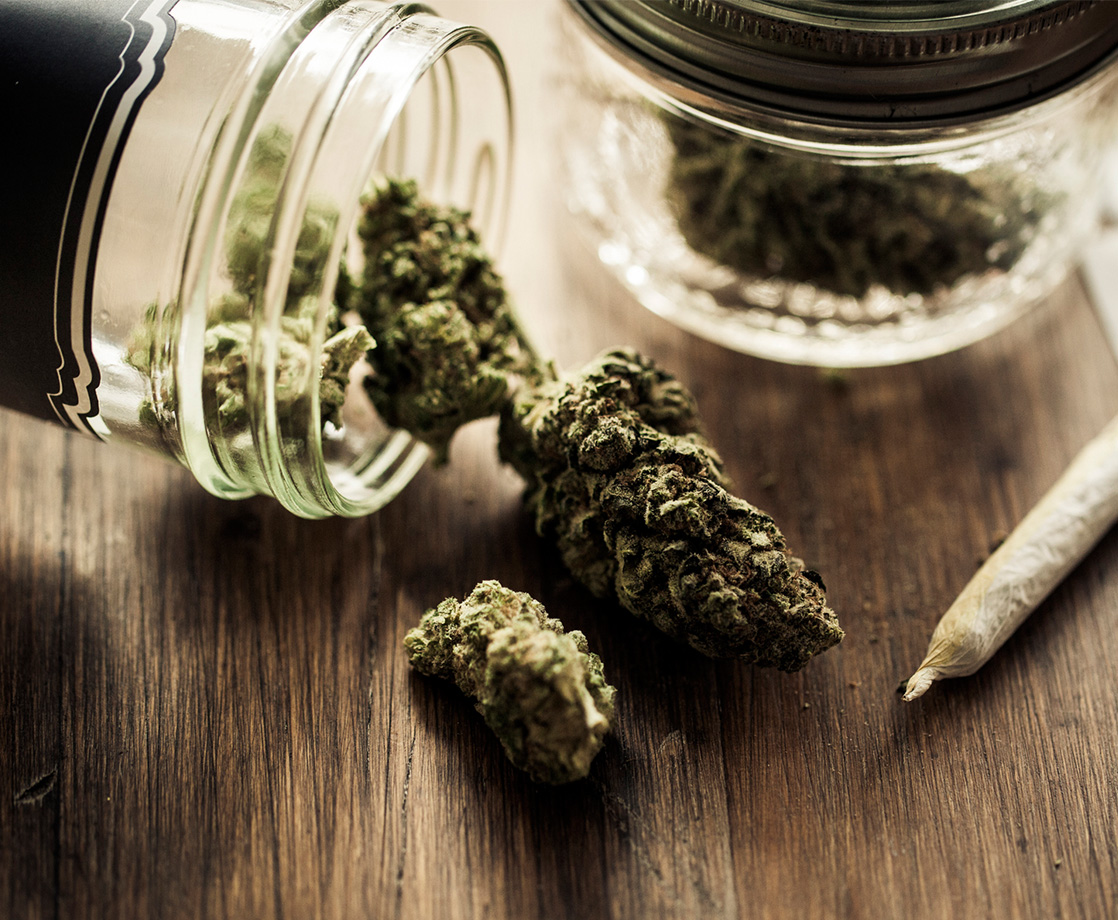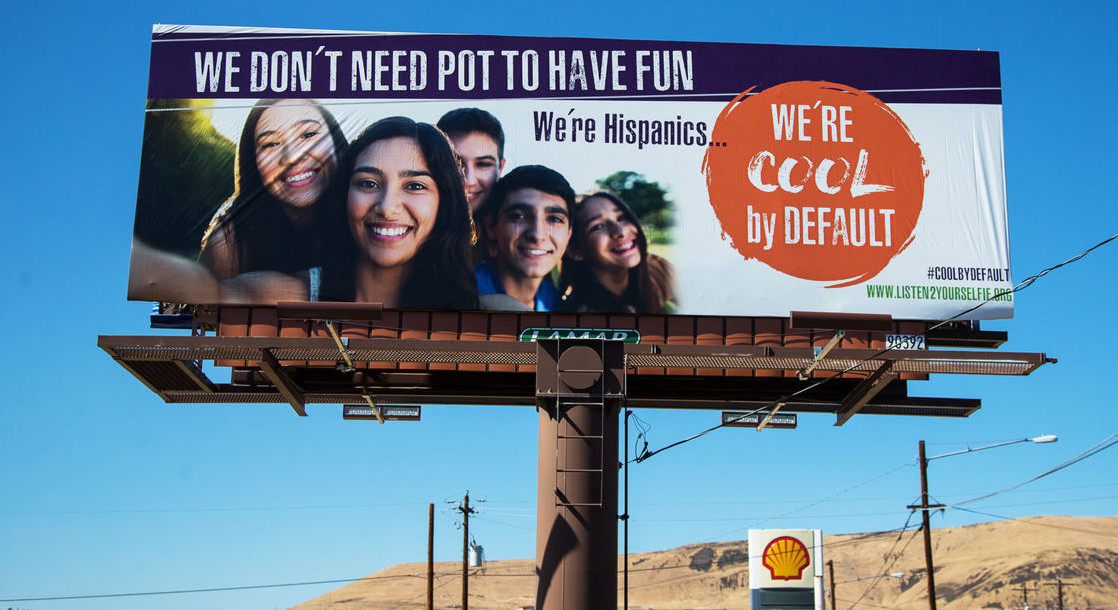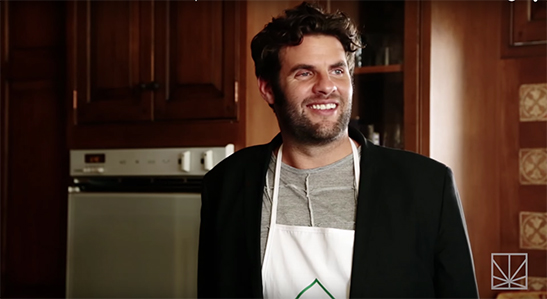Colorado legalized weed back in 2012, but it’s still illegal to smoke weed in public. With only some underground “speak easy”-styled private clubs in the area, most folks have no place to blaze. Private clubs require private memberships, so stoners will often toke at home, in their cars, at public parks, or in other semi-inconspicuous spaces. To remedy this, last November, Denver voters approved of Initiative 300, a city-wide bill to allow pot consumption at specially-approved venues like coffee shops and yoga studios. Anyone could drop by these “pot cafes,” so long as they were 21 or over. The Mile High City appeared ready to push forward, to truly bring cannabis out of the closet and into the mainstream.
“Appeared” is the key word here.
In reality, Denver’s legislature pulled its same old bullshit. The city formed a regulatory committee to hammer out the details of I-300’s pilot program, a committee filled with naysayers, prohibitionists, and other squares who’ve never even touched pot, much less supported its public use. The only person on the committee who openly admits to smoking weed is the same man who coauthored the bill and spearheaded its campaign, Emmett Reistroffer.
Reistroffer currently works as a consultant at Denver Relief Consulting, an advisory firm with cannabis industry clients across the US. Prior to working at Denver Relief, he acted as a strategist for the Marijuana Policy Project and NORML. In 2012, he was a key figure behind Amendment 64 — the law that legalized weed for all adults in Colorado.
Initially, Reistroffer and the I-300 campaign promised safe, legal smoking spots at nightclubs, concerts, restaurants, and even bars. Alcohol would have been served alongside weed, and weed would be vaped indoors, smoked outdoors. All a business had to do was apply for a “social consumption” permit, pay a fee, and receive approval from a local neighborhood association.
However, instead of turning Denver into a veritable marijuana utopia, the city’s advisory committee slapped so many restrictions on the permits that I-300 has practically become a distant echo of its original bellowing yawp. Among those new restrictions: no permits for any businesses that serve alcohol (so there goes the bars, nightclubs, and concert venues), at least one armed guard at the entrance, and no selling of weed.
The program isn’t dead, but it’s not exactly rumbling before take-off, either. What happened with I-300, and why did its promises fall short? To clear the air, so to speak, MERRY JANE met with Reistroffer at the Denver Relief offices, located just across the street from the Mutiny Information Cafe – a secondhand bookstore that may soon become one of America’s first licensed pot cafes.
This interview has been edited for length and clarity

Emmett Reistroffer (right), pictured at the press conference following the initial victory of I-300
Merry Jane: What were the most surprising rules proposed by the committee?
Emmett Reistroffer: The city has emphasized that there has to be these restrictions in place in order to comply with state law. I simply believe their interpretation of state law is wrong. It seems to me that they’re conveniently interpreting state law in such a way to prevent this from getting off the ground. I do believe there’s an agenda at the mayor’s office to not allow places to be out-in-the-open with cannabis. I think there’s a lot of fear and a lot of trust issues there, and that only changes with electing new people.
I guess what surprises me most is how far the city took those restrictions. At one point, they said we couldn’t even be open to the public. That was the goal of the entire initiative: to be open to the damned public. They literally said in those meetings, “We can’t let you be open to the public. People have to sign membership forms.” We might as well have just done the private club model then. But we did push back, and we did improve it slightly in the last month or two.
How did things improve, if at all?
For one, they got rid of the requirement for signing waivers. Now, the waiver just has to be posted on the wall, but no one has to sign anything. You’re acknowledging that you’re going to follow the law if you come in here and smoke cannabis.
Some of the committee members asked that the permits be banned within 1,000 feet of every church. Some people on the committee advocated that we couldn’t be within 1,000 feet of dispensaries. That makes no sense at all. Others wanted us banned within 500 feet of a residential zone. If that happened, then we’d have nothing left.
The restrictions on opening pot cafes near dispensaries sounds counterintuitive, no?
Yes, they came up with rules that said we couldn’t even share the same parcel of land with a dispensary or a bar. That was really an overreach. I specifically pointed that out as the worst rule of them all. People are going to want to buy their marijuana, and they want to use it. Do we really want them driving stoned back and forth across town? We needed to be located next to dispensaries, and we fought that because we thought it was way too restrictive. They also changed that, slightly, but they did put in numerous rules about consumption of alcohol that I thought were completely unnecessary.
The voters – whether it’s a good thing to combine alcohol and marijuana or not – the voters approved I-300 knowing full well it would allow cannabis to be used at the same time, at the same place, as alcohol. The city took it upon themselves to make a drastic policy decision and changed the initiative completely to say we cannot consume cannabis with alcohol. That was too big of a decision for the city to make, especially just after the voters approved it.

How many Denver businesses can potentially receive this social consumption permit?
The vast majority of the city is off-limits, and even within the permitted areas, there are a lot of railroad tracks, empty lots, warehouses, and industrial areas. There are very few actual commercial corridors where there could be properties that might get the social consumption permit.
Is there anything more discouraging in a democracy when you can write up an initiative, convince the voters to support it, pass it, and our elected officials just say no? It’s amazing to me. I went, from last summer, thinking we’d pass this and within a matter of months we’d have nightclubs and bowling alleys and all these weed-friendly places, and it’d be awesome. I went from that to today, realizing I just want to see a small coffee shop get this permit. Nothing big, nothing crazy. We need to start small — it’s baby steps.
One of the biggest letdowns was the permit only allows BYOC (Bring Your Own Cannabis) businesses and events. Any business with the social consumption permit can’t sell weed. What are some of the less obvious – but no less important – reasons why BYOC is not ideal?
Rather than trying to reinvent the wheel, I’d say we just go with similar models, like taverns and liquor stores. We said “regulate marijuana like alcohol,” but we’re not doing that. To me, “regulating like alcohol” means selling it to allow people to consume it. To me, that makes sense: you need let us sell cannabis at the clubs, for quality assurance and for the purpose of monitoring consumption.
For example, if I’m a budtender, and I’m serving you a dab, then I’m taking on some responsibility. I’m responsible for cutting you off if you’re having too much. If you’re five dabs deep, and you’re starting to pass out, then I, as the budtender, might say, “No more dabs. Have some water until you cool off.”
I know a lot of people in Denver may laugh at that. They’ll say they can’t have too many dabs. And that’s true for a lot of people. But there’s a lot of tourists who can’t, necessarily. Tourists would benefit from a budtender that’s informed and taking on some of that responsibility of monitoring their consumption. That’s exactly what we do in bars when serving alcohol.
When it’s BYOC, the business owner doesn’t share that responsibility. You’re loading your own pipe, you’re putting in your own dab. I, personally, don’t think that’s a fair comparison, because marijuana is much safer than alcohol. But I think selling it empowers the establishment to be more responsible and to ensure it’s done safely.

It’s still a little early, but do you know which businesses are getting this social consumption permit?
Unfortunately, the vast majority of the businesses that were initially interested in this permit have become so discouraged because of the news headlines of how restrictive these permits would be. I recently met with the owner of Mutiny Cafe, and he is really interested; we hope to see him get one of the first permits. I talked to a bar owner who wants to open a coffee shop with the permit. I know of a fitness gym that wants a permit, because they want to incorporate cannabis with working out.
On another note, there’s a woman who came up with the idea to open a patient spa, combining massage and physical therapy with cannabis. When we talk about social use, we tend to think about the club, the party, having fun, listening to music. But I was ignorant going into this – thinking about me and my friends wanting to use marijuana.
Once I started doing the petitions, and people started telling me why they wanted I-300, I started to learn there were some serious reasons for these permits. There are military veterans with PTSD, there are people living in public housing [where marijuana is banned], and there are people suffering from illnesses who want to try cannabis, but they’d like to do it with other people, where they can talk about it openly. So, there is a need for these permits from a patient aspect, as well.
The appeals period has come and gone for I-300. Where do you go now that the final, restrictive rules are in place?
The alcohol rule is the big one, because I can’t convince anybody to give up their liquor license. That’s what makes their money, that’s what pays the rent. To tell a business owner they have to give up their liquor license to let people smoke weed, but you can’t even sell them the weed, is just a shot in the foot. How do they make money then? Anyone that has a liquor license is not eligible, and they’re not interested.
But I’d like to find some bars or restaurants or concert halls with a patio adjacent to them, where they can cut off their liquor license. They’d have to have a security guard at that doorway making sure drinks don’t go out to the smoking area and marijuana is not coming in openly into the drinking area. That’s an adjacent premise concept, where a bar could still serve alcohol but still get a consumption permit for the patio outside. I might have let the genie out of the bottle there, because there are some possibilities.
These possibilities require creativity, and at the same time we have to be totally open with the neighborhood groups that are going to be weighing in at the public hearings for these permits. We can’t hide anything, we have to be open that the patio is there. It’s just about finding something that works, because people want a place to go to use cannabis.
For more on Emmett Reistroffer, visit Denver Relief Consulting's website here
Follow Randy on Twitter











